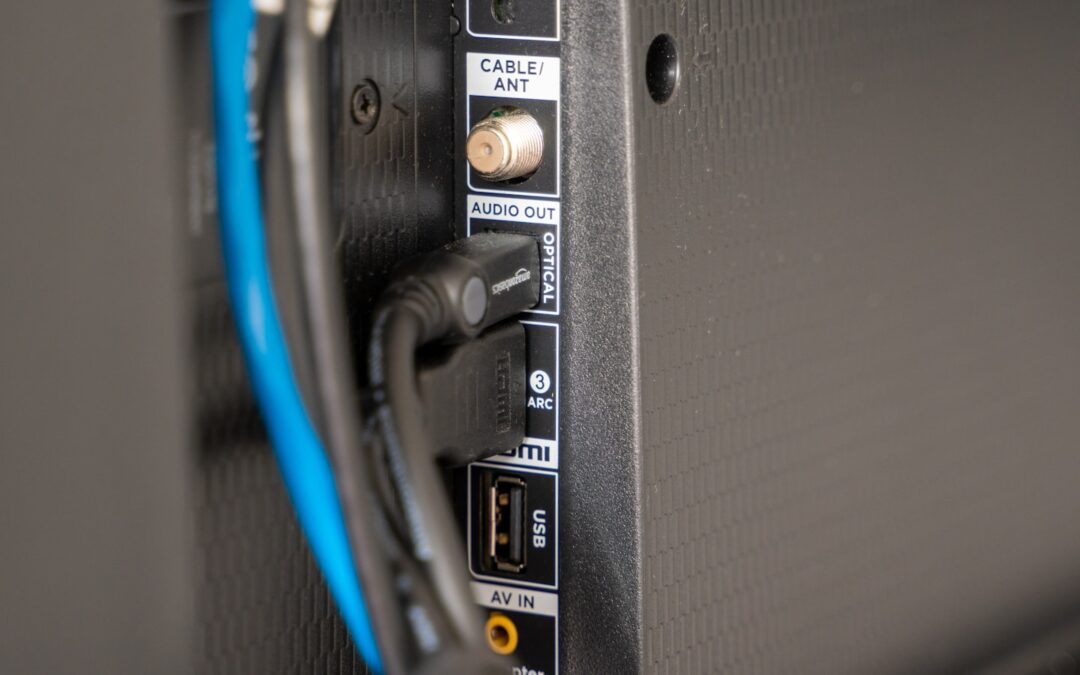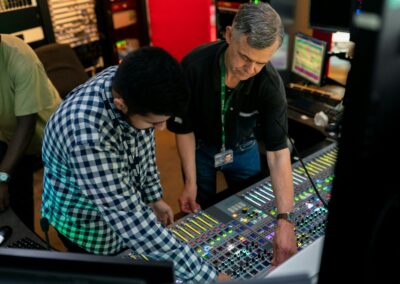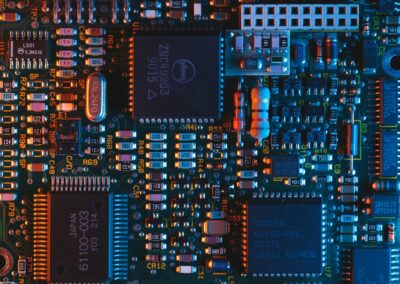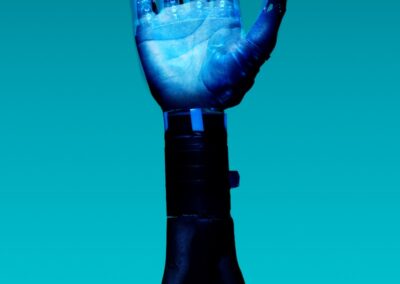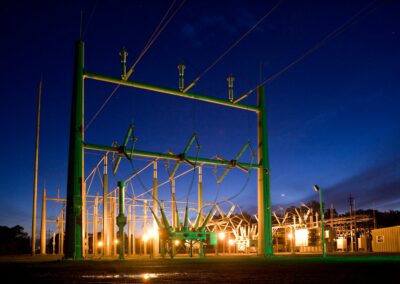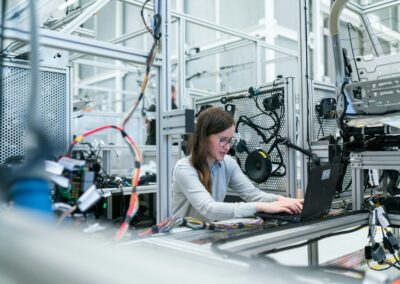Understanding the Ethical Landscape of Digital Twin Technology
The Ethical Implications of Digital Twin Technology
The application of digital twin technology in the energy sector raises several ethical challenges that must be addressed to ensure responsible development and implementation. Digital twins, which create detailed virtual replicas of physical assets, offer unprecedented opportunities for optimizing energy systems and enhancing operational efficiency. However, their use also introduces complex ethical considerations related to data privacy, security, and decision-making.
In regions such as Saudi Arabia and the UAE, where rapid technological advancements are integral to economic development, the ethical deployment of digital twins is crucial. These technologies can collect and analyze vast amounts of data, potentially leading to concerns about how this information is used and who has access to it. Ensuring that digital twins are implemented with strict data privacy measures and transparent governance structures is essential for maintaining public trust and achieving long-term sustainability.
Moreover, the integration of digital twins into energy infrastructure requires careful consideration of the potential impacts on stakeholders. For instance, the use of digital twins to predict and optimize energy consumption must be balanced with the need for equitable access to energy resources. Addressing these ethical concerns involves creating clear guidelines and regulations that govern the use of digital twin technology, ensuring that it benefits all stakeholders fairly and transparently.
Data Privacy and Security Concerns
Data privacy and security are among the most pressing ethical challenges associated with digital twin technology in the energy sector. Digital twins rely on real-time data from various sources, including sensors and IoT devices, to create accurate virtual models. This data can be highly sensitive, involving detailed information about energy consumption patterns, infrastructure conditions, and even personal details of individuals interacting with the system.
In cities like Riyadh and Dubai, where smart city initiatives and advanced technologies are rapidly evolving, safeguarding this data is critical. Implementing robust data security measures, including encryption, access controls, and regular audits, is essential to protect against unauthorized access and potential cyber threats. Additionally, transparency in how data is collected, stored, and used helps build trust among users and stakeholders, ensuring that their information is handled responsibly.
The challenge also extends to managing the vast amounts of data generated by digital twins. Efficient data management practices must be employed to ensure that data is accurate, relevant, and used appropriately. This includes establishing clear protocols for data sharing and usage, as well as providing mechanisms for individuals to control their personal information. Addressing these issues proactively helps mitigate the risks associated with data privacy and security in the context of digital twins.
Decision-Making and Accountability
Another significant ethical consideration in the development and use of digital twins is the issue of decision-making and accountability. Digital twins can provide valuable insights and recommendations for optimizing energy systems, but the reliance on these recommendations raises questions about accountability when things go wrong.
In the energy sector, where digital twins are used to make critical decisions regarding energy distribution, resource management, and infrastructure maintenance, it is essential to establish clear lines of accountability. This involves defining who is responsible for the decisions made based on digital twin insights and ensuring that there are mechanisms for oversight and review.
Furthermore, the use of digital twins in decision-making processes must be transparent and inclusive. Stakeholders, including the public, should be informed about how decisions are made and have opportunities to provide input. This helps ensure that the technology is used ethically and that its benefits are distributed equitably.
In regions like Saudi Arabia and the UAE, where digital twin technology is being integrated into major energy projects, addressing these ethical concerns is vital for achieving successful outcomes. By implementing transparent decision-making processes and establishing accountability frameworks, organizations can enhance the effectiveness and credibility of digital twin technology in the energy sector.
Mitigating Ethical Challenges in Digital Twin Technology
Developing Ethical Guidelines and Frameworks
To address the ethical challenges associated with digital twin technology, it is essential to develop comprehensive ethical guidelines and frameworks. These guidelines should cover various aspects of digital twin implementation, including data privacy, security, decision-making, and stakeholder engagement.
In the context of Saudi Arabia and the UAE, where digital twin technology is becoming increasingly prevalent, creating tailored ethical guidelines that align with local regulations and cultural norms is crucial. This involves collaborating with technology providers, policymakers, and industry experts to develop standards that address the unique challenges and opportunities in these regions.
Additionally, organizations should establish internal policies and practices that promote ethical behavior and compliance with these guidelines. This includes training staff on ethical issues related to digital twins, implementing robust data protection measures, and ensuring transparency in decision-making processes. By fostering a culture of ethics and accountability, organizations can navigate the complex landscape of digital twin technology effectively.
Promoting Public Awareness and Engagement
Promoting public awareness and engagement is another key strategy for addressing the ethical challenges associated with digital twin technology. Educating stakeholders about the benefits and potential risks of digital twins helps build trust and encourages informed participation in the development and use of these technologies.
In regions like Riyadh and Dubai, where technological innovations are rapidly evolving, public engagement initiatives can play a significant role in shaping the ethical deployment of digital twins. This includes organizing workshops, seminars, and public consultations to provide information about digital twin technology and gather feedback from the community.
Engaging with the public also involves addressing their concerns and incorporating their input into the development of ethical guidelines and practices. By actively involving stakeholders in the decision-making process, organizations can ensure that digital twin technology is used responsibly and in a manner that aligns with societal values and expectations.
Conclusion: Navigating the Future of Digital Twin Technology
As digital twin technology continues to advance, addressing the ethical challenges associated with its development and use is essential for ensuring responsible and sustainable innovation in the energy sector. By focusing on data privacy and security, decision-making accountability, and ethical guidelines, organizations in Saudi Arabia, the UAE, and beyond can harness the benefits of digital twins while mitigating potential risks.
The successful integration of digital twins into energy systems requires a commitment to ethical practices and a proactive approach to addressing challenges. By fostering transparency, accountability, and public engagement, organizations can navigate the complexities of digital twin technology and contribute to a more equitable and sustainable future.
In conclusion, the ethical considerations surrounding digital twin technology are critical for achieving its full potential in the energy sector. By developing robust ethical frameworks, promoting public awareness, and addressing key challenges, organizations can ensure that digital twins are used responsibly and effectively, paving the way for a smarter and more sustainable energy future.
—
#EthicalChallenges #DigitalTwinTechnology #EnergySector #DataPrivacy #DecisionMaking #ModernTechnology #ArtificialIntelligence #Blockchain #SustainableDevelopment #BusinessSuccess #ProjectManagement #SaudiArabia #UAE #Riyadh #Dubai

